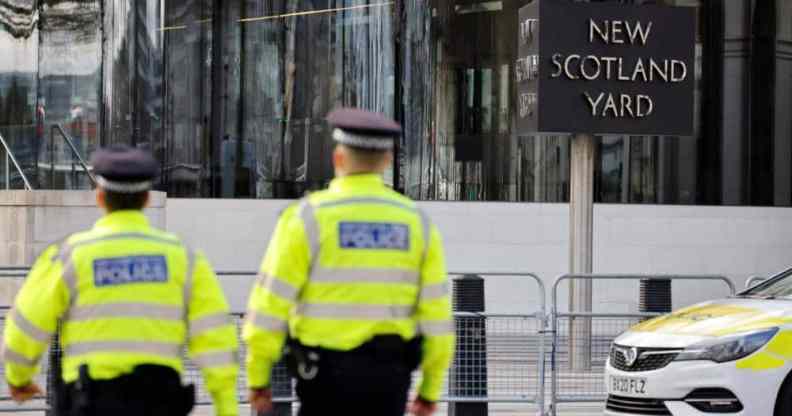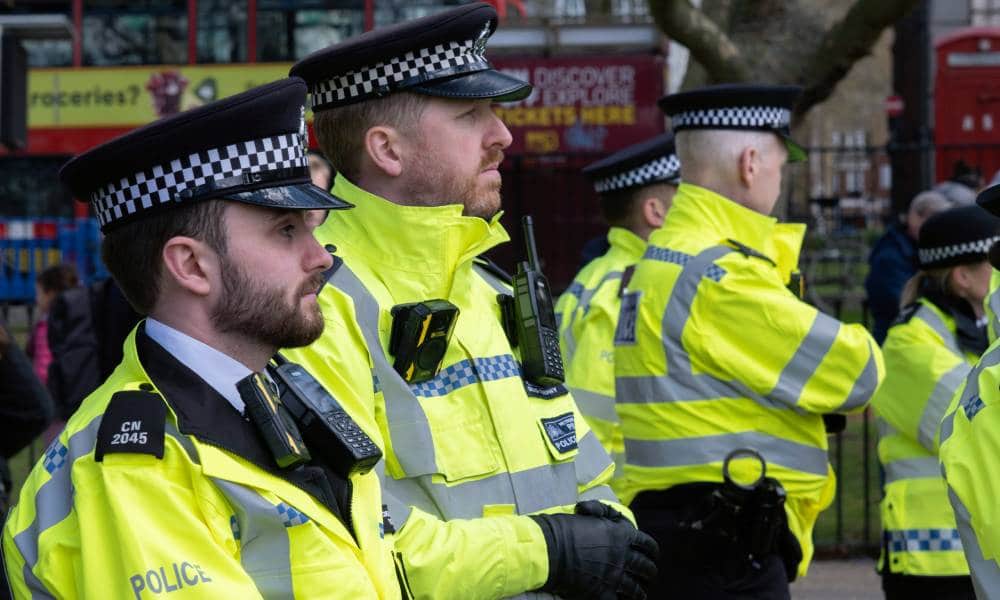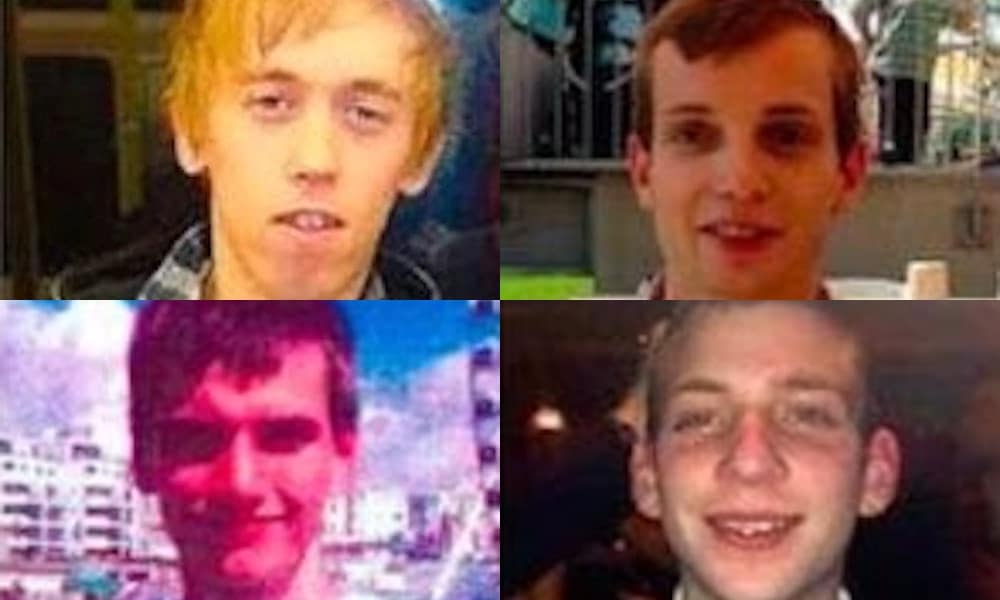Metropolitan Police put under special measures over ‘critical shortcomings’

Police were called at around 4.20am on Sunday, 12 February to reports of a homophobic assault on Clapham High Street. (AFP via Getty/Tolga Akmen)
The Met Police is being put under special measures by the police watchdog after several scandals revealed “serious or critical shortcomings” in the force.
The decision by Her Majesty’s Inspectorate of Constabulary and Fire and Rescue Services (HMICFRS) will place Scotland Yard under additional scrutiny, require the force to report to inspectors more frequently and potentially mean it would need to meet certain targets, according to the Times.
In a statement to the Telegraph, the police watchdog confirmed that it is “now monitoring the Met Police Service” through its “engagement process which provides additional scrutiny and support to help it make improvements”.
When asked if this meant the force would be placed under special measures, the spokesman said: “Yes.”
The move comes after the embattled police force has been rocked by scandal after scandal.
This includes the Met facing a fresh investigation over its handling of the murders of four gay men by Stephen Port, and a damning report by the Independent Office for Police Conduct that exposed a disturbing pattern of homophobia, bullying and harassment within the Met.
The Met has also come under fire for the Child Q scandal, in which a Met Police officer strip-searched a Black schoolgirl while she was on her period, without another adult present. A safeguarding report said racism “was likely to have been an influencing factor”.
Confidence in the Met was also rocked after the murder of Sarah Everard by a serving officer in 2021.
Matt Parr at the HMICFRS said in a letter that there were “several examples of high profile incidents” which questioned the force’s performance and were “likely to have a chilling effect on public trust and confidence in the Met”.
Parr added there had been “substantial and persistent concerns” about the force.
Police forces are only put under special measures if there has been “significant or enduring concerns over their ability to address areas of significant or longstanding under performance”, the Telegraph reported.
Only three other forces across Britain – Greater Manchester, Cleveland and Gloucestershire – are currently under such special measures.
The new commissioner of the Met, who has yet to be named, will need to create an action plan to address the force’s failures and present this plan to a board including the HMICFRS, Home Office and Greater London police authority.
The Met will only be released from the special measures when “sufficient and consistent improvement” has been achieved.

Her Majesty’s Inspectorate of Constabulary and Fire and Rescue Services said there are “substantial and persistent concerns” about the Metropolitan Police. (Mike Kemp/In Pictures via Getty)
Port murdered at least four young men – Anthony Walgate, Gabriel Kovari, Daniel Whitworth and Jack Taylor – over a 16-month period between 2014 and 2015 that terrified Britain’s LGBTQ+ community.
Inquests into the murders in 2021 argued that officers involved in the Port investigation were guilty of “institutional homophobia”. The damning accusation came from a friend of one victim who argued that Police were “unwilling to engage” with friends and family of the victims as they begged police to investigate Port.
In December, the inquest jury was told by coroner Sarah Munro QC that they could not consider “prejudice or homophobia or discrimination” by officers as a contributing factor in the deaths of the young gay men.
A short while later, on 10 December, the jury found there were “failures which cannot be overlooked” when it came to police handling of the investigation.
The Independent Office for Police Conduct (IOPC) announced on 23 June that it would investigate the Met Police once again over how the force investigated the Port case.
IOPC regional director Graham Beesley said the reinvestigation process identified “evidence which meets both the significant new information and material flaw categories” in this case. As such, Beesley said the IOPC believed a “proportionate” and “thorough” investigation is in the public interest.
“Due to the size of the original investigation and the amount of information it obtained, this has been a complex task,” Beeley said. “This has been necessary to ensure the reinvestigation decision process was in line with legislation and that any subsequent decisions on reinvestigating were based on a thorough and robust examination of the information available.”
Speaking on behalf of the victims’ families, solicitor Neil Hudgell of Hudgell Solicitors told PinkNews that it was “only logical” that the IOPC decided to reopen the investigation.
“The original IOPC report was hindered by a wall of silence, given that all but one of the 17 officers questioned gave ‘no comment’ interviews,” he said. “Our hope now is that the IOPC will have a lot more to go on.”

Stephen Port’s victims (clockwise form top left) Anthony Walgate, Gabriel Kovari, Daniel Whitworth and Jack Taylor. (Justice for our Murdered Boys)
Hudgell added the “inadequate investigations” by the Met into the four deaths is “one of the most widespread institutional failures in modern history, exacerbated by a woeful lack of remorse, regret or sympathy displayed at the inquests by some of the officers involved”.
The Met Police being placed under special measures also follows the departure of former commissioner Cressida Dick earlier this year. Dick stepped down from the role in February after an IOPC report revealed the extent of the discrimination, misogyny, homophobia and racism that Met officers took part in.
The shocking investigation revealed that “malicious” homophobic, racist, misogynist and violent comments made by officers were dismissed as “laddish banter”. Examples of “banter” highlighted in the report included officers sending homophobic remarks to each other like “you f*****g gay” and f**k you bender”.
A replacement for Dick has yet to be named, and deputy commissioner Sir Stephen House has been serving as acting commissioner as the recruitment process continues.

